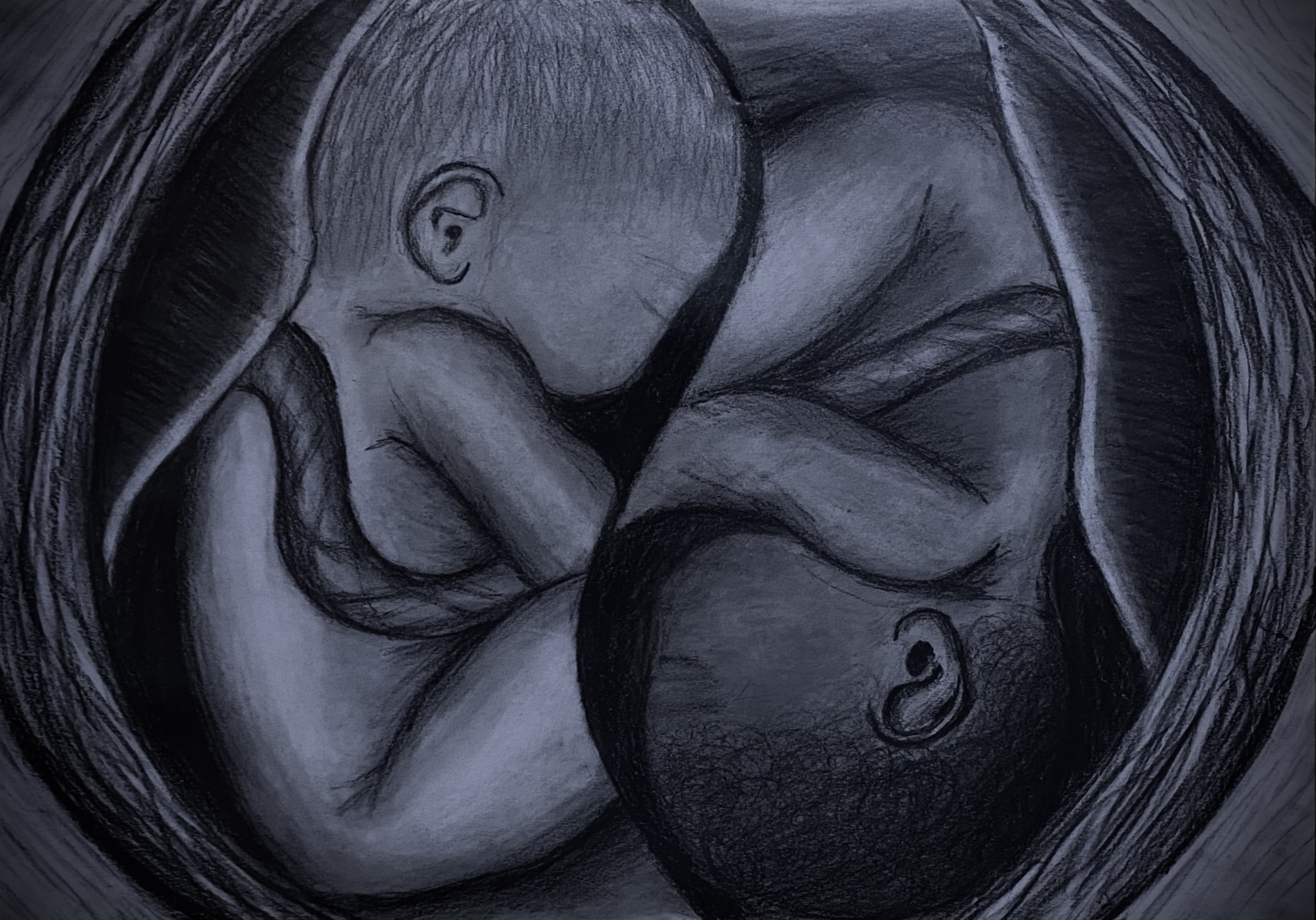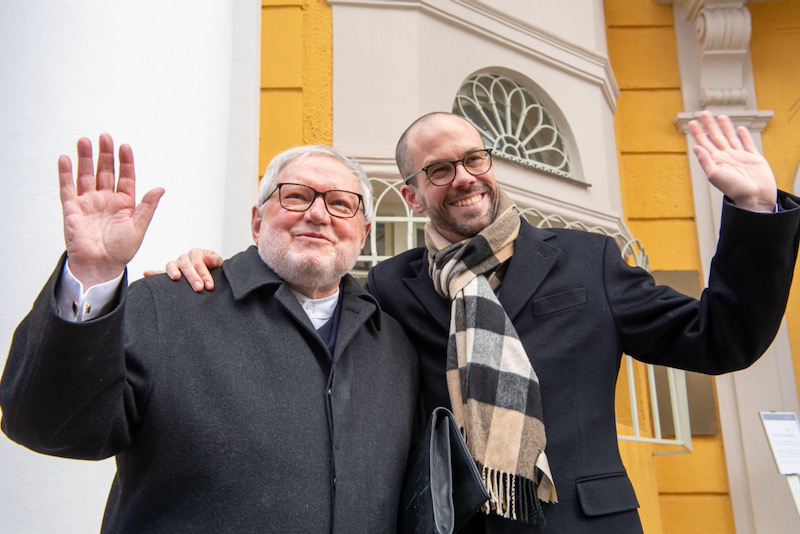Imagine that someone deliberately locks themselves into a small room. They then let it be known that they can’t discuss something with you … because they are locked in a small room. And their justification takes the form: “Can’t because we say we can’t because we said we can’t”.
This act of communication is called a “tantrum”. It is not meant to educate you about anything. Other, accidentally, than the self-importance of its perpetrator and their circular grasp of logic. It is meant to interrupt whatever you were doing, play on your emotions and try to exercise power over you. It demands the end of the dialogical and the imposition of the absolute. The kind of absolutism we associate with angry infants.
Luckily, as adults know, a tantrum only has the power over you that you give it.
I say this not to insult the Congregation for the Doctrine of the Faith, whose senior members surely know the communication games they are playing with the German Synod. I say it to offer protection to people who are hurt and scandalised by their responsum to a dubium regarding the blessing of the unions of persons of the same sex. For when you perceive that something is a tantrum, you are less likely to be hurt by anything said by the tantrum thrower. Less likely to think it has anything to do with you. More aware that a self-fuelling delusion is at work.
Having said that, the CDF responsum does seem to follow the tantrum model of capricious “educatio interrupta”. It produces a self-provoked question, and gives a self-referential answer. One which it hopes will be an act of power, not an act of dialogue.
Then it justifies itself with circular logic: from an apriori deduction of the presumed intrinsic heterosexuality of all humans, the CDF assumes an objectively disordered tendency and intrinsically evil acts to be at work in both partners in a same-sex relationship, and so reaches the only conclusion that it can. And quotes itself extensively to prove it.
And this is their sadness: our brethren (sic) are locked into an account of objectivity which bears passing little relationship to the reality of creation as we are coming to know it and participate in it. And they will be so locked until either a pope or a council sets them free from running round on this treadwheel, gives them formal permission to move on.
A key question behind moving on from tantrum teaching is this: How is divine wisdom in fact, and in practice, revealing the intelligibility of all created things to us and turning us, by our active and intelligent participation in that creative wisdom, into daughters and sons of God, heirs to creation?
Our learning over the last hundred years or so about the matters we now refer to as LGBT+ serve as a good test case for how we might begin to answer this. Where frightened morality tries to close things down, wisdom, starting from our rejects, opens up the reality of what is, as we undergo being forgiven for our narrow goodness and hard-heartedness, sifting through our fears and delusions. And so we discover our neighbours as ourselves, and how we are loved.
Only a theological anthropology of learning that accompanies how we do, in fact, learn can help with this. Not one which demands a series of deductions from presumed first principles, and then discards the bits of reality which don’t fit.
And so to the matter of blessings given to, received and shared by, same-sex couples: Our Lord teaches us to know a tree by its fruit. He provokes our learning process. And it leads us to find things to bless, forms of blessedness old and new. The power and the glory of the Creator do tend to show themselves through our becoming, as we discern what we are for and who we are. It is a learning which is especially blessed when we find ourselves being forgiven for having categorised groups of people in false ways, and discovering that life is richer and better for all of us when they are encouraged to be who they are.
The CDF, faced with the same tree and its fruit, assures us that because it is the wrong sort of tree, therefore the fruit must be bad. That is not a learning process. It is a holding to a restrictive sacred which sets its brandishers free from the need to learn.
I’m very glad that so many Catholics are dodging the tantrum and hewing to Our Lord. The responsum is unlikely to dissuade us from blessing God as we find God blessing us.
James Alison is a priest, theologian, lecturer, retreat giver and itinerant preacher. When not on the road, he lives in Madrid.



 Loading ...
Loading ...
What do you think?
You can post as a subscriber user ...
User comments (1)
The first is Natural Law, which has failed to take account of what we now know about how nature really works. Sexual attraction, along with other human appetites, is a side-effect of evolutionary success. That there should be variations in the nature of sexual attraction should not be a surprise. So how to decide what is "ordered" or "disordered"?
The second foundation I would like to mention, which is perhaps more fundamental than Natural Law is Purpose. What are we here for? The penny catechism provides a perfectly straightforward answer to the basic question. Starting at that point a huge and complex edifice has been constructed over many centuries with the goal of telling us how to live in order to fulfill our Purpose. Subsequent catechisms and (I presume, not being a Canon Lawyer) Canon Law codify the fruits of these efforts.
So if a particular act or behaviour cannot be condemned on grounds of disorder are we free to engage in "moral relativism"? Not at all. Our purpose still demands selfless love, self giving and often self-sacrifice. Virtues, including chastity of course, are still the necessary tools and disciplines we need to strive towards our purpose.
The truth is that any act outside the context of selfless love of neighbour is disordered.